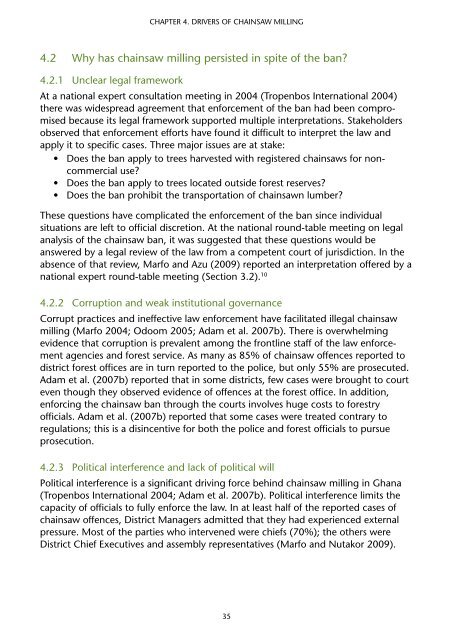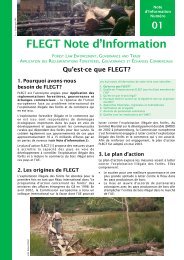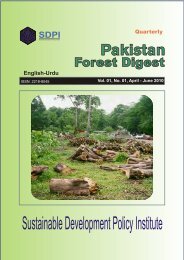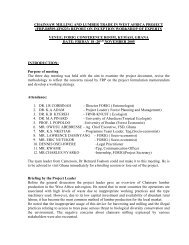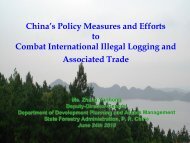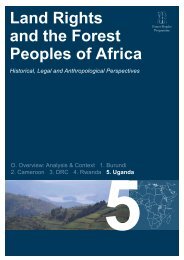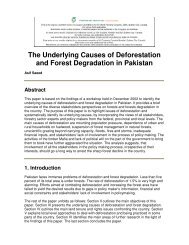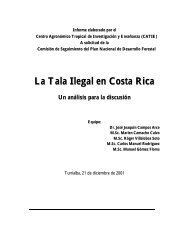CHAINSAW MILLING IN GHANA: CONTExT, DRIVERS ... - Fornis.net
CHAINSAW MILLING IN GHANA: CONTExT, DRIVERS ... - Fornis.net
CHAINSAW MILLING IN GHANA: CONTExT, DRIVERS ... - Fornis.net
- No tags were found...
You also want an ePaper? Increase the reach of your titles
YUMPU automatically turns print PDFs into web optimized ePapers that Google loves.
Chapter 4. Drivers of chainsaw milling4.2 Why has chainsaw milling persisted in spite of the ban?4.2.1 Unclear legal frameworkAt a national expert consultation meeting in 2004 (Tropenbos International 2004)there was widespread agreement that enforcement of the ban had been compromisedbecause its legal framework supported multiple interpretations. Stakeholdersobserved that enforcement efforts have found it difficult to interpret the law andapply it to specific cases. Three major issues are at stake:• Does the ban apply to trees harvested with registered chainsaws for noncommercialuse?• Does the ban apply to trees located outside forest reserves?• Does the ban prohibit the transportation of chainsawn lumber?These questions have complicated the enforcement of the ban since individualsituations are left to official discretion. At the national round-table meeting on legalanalysis of the chainsaw ban, it was suggested that these questions would beanswered by a legal review of the law from a competent court of jurisdiction. In theabsence of that review, Marfo and Azu (2009) reported an interpretation offered by anational expert round-table meeting (Section 3.2). 104.2.2 Corruption and weak institutional governanceCorrupt practices and ineffective law enforcement have facilitated illegal chainsawmilling (Marfo 2004; Odoom 2005; Adam et al. 2007b). There is overwhelmingevidence that corruption is prevalent among the frontline staff of the law enforcementagencies and forest service. As many as 85% of chainsaw offences reported todistrict forest offices are in turn reported to the police, but only 55% are prosecuted.Adam et al. (2007b) reported that in some districts, few cases were brought to courteven though they observed evidence of offences at the forest office. In addition,enforcing the chainsaw ban through the courts involves huge costs to forestryofficials. Adam et al. (2007b) reported that some cases were treated contrary toregulations; this is a disincentive for both the police and forest officials to pursueprosecution.4.2.3 Political interference and lack of political willPolitical interference is a significant driving force behind chainsaw milling in Ghana(Tropenbos International 2004; Adam et al. 2007b). Political interference limits thecapacity of officials to fully enforce the law. In at least half of the reported cases ofchainsaw offences, District Managers admitted that they had experienced externalpressure. Most of the parties who intervened were chiefs (70%); the others wereDistrict Chief Executives and assembly representatives (Marfo and Nutakor 2009).35


